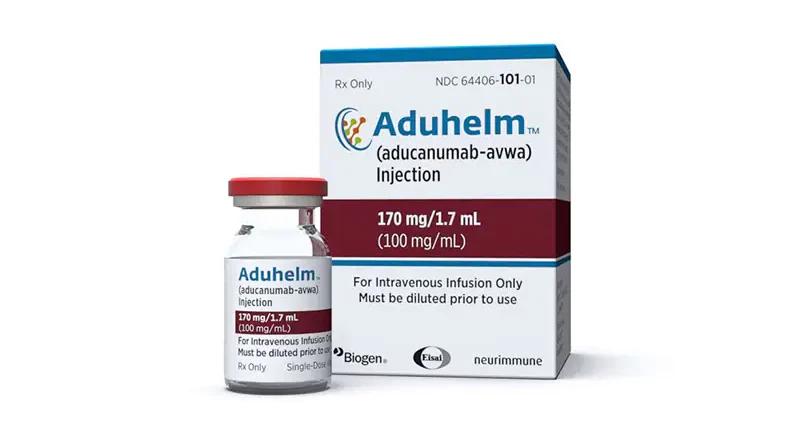Medicare Premium Hike Reassessed Due to Aduhelm Price Cut
Medicare will reassess the planned 2022 premium for Part B services after Biogen Inc’s decision to slash the cost of its controversial aducanumab (Aduhelm) drug for Alzheimer’s disease, a top federal official said Monday.
US Department of Health and Human Services (HHS) Secretary Xavier Becerra issued a statement about his instruction to the Centers for Medicare & Medicaid Services (CMS).
“With the 50% price drop of Aduhelm on January 1, there is a compelling basis for CMS to reexamine the previous recommendation,” Becerra said in a statement.
Becerra’s announcement comes ahead of an expected January 12 release by CMS of its proposed decision about how Medicare should pay for Aduhelm. In November, CMS said that the standard monthly Part B premium would rise from $148.50 in 2021 to $170.10 in 2022, partly due to the potential costs to taxpayers to cover aducanumab. In December, Cambridge, Massachusetts–based Biogen announced that it would reduce the yearly cost of aducanumab to $28,200 from the previously announced $56,000 tab.
The cost of aducanumab is only one of the challenges the drug poses for federal officials.
The internal watchdog for HHS, its Office of Inspector General, in August announced a plan to review how the US Food and Drug Administration (FDA) uses the accelerated approval process, owing to concerns triggered by the aducanumab approval. The FDA overrode the objections of its advisers to clear aducanumab despite the objections of its Peripheral and Central Nervous System Drugs Advisory Committee.
For CMS, the challenge is what Medicare should pay for a drug with as-yet unproven significant benefit, potential risks, and a high price tag.
For that reason, CMS in July announced that it is considering setting a national coverage standard for use of monoclonal antibody (mAb) drugs directed against amyloid for the treatment of Alzheimer’s disease. CMS set January 12 as the deadline for the release of its proposed decision and April 12 as the target deadline to complete this work.
“Aduhelm’s high price, combined with limited clinical evidence of its effectiveness, presents a major challenge to seniors’ limited budgets and the American health care system,” said Senate Finance Chairman Ron Wyden (D-OR) in a Monday statement.
“I urge CMS to conduct this reassessment in a timely manner and deliver lower costs to seniors as soon as possible.”
Clinical Benefit Yet Unproven
With aducanumab, the FDA’s leadership in effect bet that the surrogate endpoint of reduction of amyloid beta plaque in the brain — a hallmark of Alzheimer’s disease — would pay off in time in clinical benefit. In the June approval letter, the FDA gave Biogen until 2029 to complete a trial proving the drug offers a benefit, with a 2030 deadline for submission of a final report on this study. (Companies and the FDA often revise the target dates for completion of confirmatory trials due to difficulties in concluding these tests.)
In a comment to CMS about the review of aducanumab, Michael Carome, MD, director of nonprofit Public Citizen’s Health Research Group, noted that aducanamab is similar to nearly two dozen prior unsuccessful experimental drugs that targeted amyloid-beta over the past two decades. These experimental medicines were predicated on the still-unproven “amyloid hypothesis,” introduced in the early 1990s, he wrote.
“None of these drugs was shown to be efficacious for treating Alzheimer’s disease — including some drugs that were shown to prevent further accumulation of amyloid-beta plaques in the brain or to reduce the amount of amyloid-beta plaques in the brain based on positron emission tomography scans — and many caused serious harm, including worsening of cognition in some cases,” Carome wrote.
One of the largest US insurers, Humana, also argued against widespread use of aducanumab, based on the data gathered to date on the medicine.
William Fleming, PharmD, Humana’s segment president for pharmacy solutions, and the insurer’s chief medical officer, William Shrank, MD, suggested that if Medicare covers the drug, the agency should do so in a way that aids in gathering further evidence about how aducanumab works. Otherwise, people with Alzheimer’s disease could be put at risk, they wrote.
“Given the data that is publicly available, we do not have confidence that mAbs are reasonable and necessary for the treatment of AD based on the safety and efficacy profile of this class of drugs,” Fleming and Shrank wrote in their comment to CMS. “Nor do we believe there are adequate, established tests to diagnose or monitor the patients who are referred for this treatment.”
Kerry Dooley Young is a freelance journalist based in Washington, DC. She is the core topic leader on patient safety issues for the Association of Health Care Journalists. Young earlier covered health policy and the federal budget for Congressional Quarterly/CQ Roll Call and the pharmaceutical industry and the Food and Drug Administration for Bloomberg. Follow her on Twitter at @kdooleyyoung.
For more news, follow Medscape on Facebook, Twitter, Instagram, and YouTube.
Source: Read Full Article



